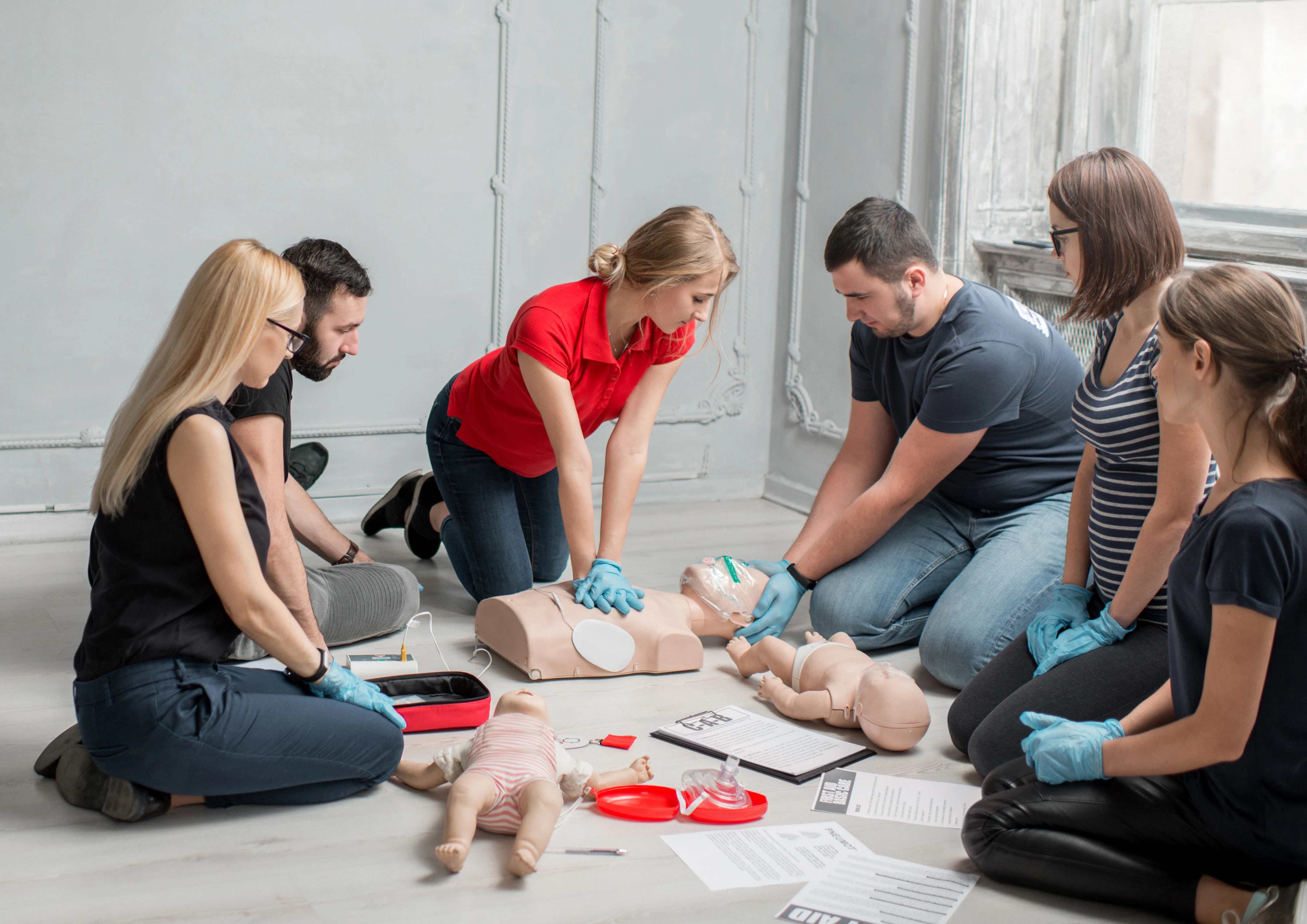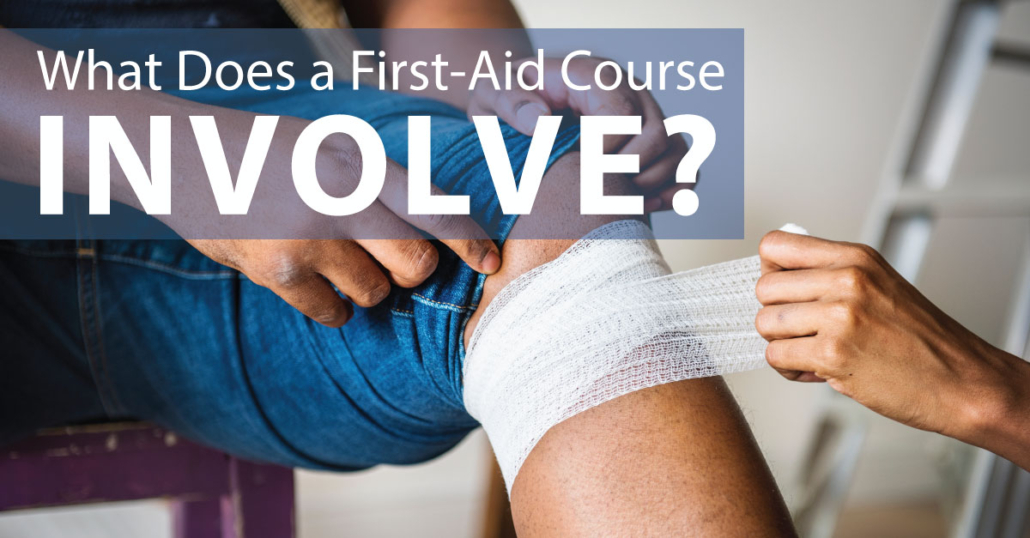Introduction
In today's hectic globe, being equipped with the knowledge and abilities to take care of emergency situations can make a substantial difference. Whether you are a parent, educator, trainer, or just someone that wishes to contribute to safety in your community, signing up in a first aid course is an outstanding step. This article will direct you via what to anticipate throughout your first aid course experience. From recognizing the educational program to the accreditation process, we'll cover whatever you require to learn about first aid and CPR courses
What to Expect from Your Emergency Treatment Course Experience
When attending an emergency treatment course, it's all-natural to wonder what you'll find out and just how it will certainly exist. Usually, these programs include various subjects varying from standard first aid strategies to advanced life assistance techniques.
1. Recognizing the Program Structure
First aid programs vary in framework depending on the supplier. Nonetheless, a lot of programs include academic lessons complied with by useful sessions. You can anticipate:
- Interactive Knowing: Engaging lectures that permit inquiries and discussions. Hands-On Practice: Opportunities to practice strategies like CPR on mannequins.
2. Vital Subjects Covered
During your first aid course experience, you'll dive into crucial subjects such as:
- CPR Techniques: Knowing how to execute CPR efficiently can conserve lives. First Help for Choking: Recognizing exactly how to help someone that is choking.
3. Understanding CPR: The Heart of First Aid
One vital element of your training will certainly include learning cardiopulmonary resuscitation (MOUTH-TO-MOUTH RESUSCITATION). This ability is important throughout emergencies when every second counts. You'll find out:
- The relevance of very early defibrillation How to examine a victim's responsiveness The steps for adult, child, and baby CPR
4. Certification Refine: What You Need to Know
After finishing your training, you'll likely get a first help certificate which verifies your skills. Right here's what you can expect:
- Completion of both created and practical exams. Recognition from controling bodies like the Red Cross or St. John Ambulance.
5. Skills You'll Gain Beyond First Aid
Enrolling in a first aid and CPR course does not simply furnish you with emergency situation skills; it additionally promotes self-confidence and recognition in different circumstances:
- Improved decision-making under pressure Enhanced interaction abilities for managing crises
Why Take an Emergency treatment Course?
The benefits of taking an emergency treatment course are many. Whether you're checking out it simply from an individual development perspective or considering its professional applications, right here are some compelling reasons.
6. Enhancing Work Environment Safety
Many workplaces require employees to have fundamental first aid knowledge. By taking part in these courses:
- You add positively towards workplace safety. You'll be better gotten ready for emergencies that might arise on-site.
7. Fostering Area Well-being
Knowing emergency treatment permits you not just to assist loved ones yet likewise neighbors and area members in times of need.

8. Getting ready for Parenthood
For new moms and dads, discovering first aid can supply satisfaction when looking after children.
Common Misconceptions Concerning First Aid Courses
Despite their importance, there are a number of misconceptions bordering emergency treatment training courses that might discourage people from enrolling.
9. It's Just for Clinical Professionals
Many believe that just medical professionals need to take these training courses; nonetheless, any individual can benefit!
10. It's too Complicated
First aid training is made for every person! The methods educated are straightforward with lots of hands-on practice.
The Duration of First Aid Courses: A Breakdown
Another typical query pertains to how long these programs take.
|Course Kind|Duration|| ------------------|-------------------|| Basic First Aid|6 - 8 hours|| Advanced Courses|12 - 20 hours|| Mouth-to-mouth resuscitation Courses|4 - 6 hours|
This table gives you an idea concerning time dedication depending upon the kind of course.
What Should You Bring? Basics Checklist
When preparing for your emergency treatment course experience, take into consideration loading the complying with products:
Comfortable apparel ideal for physical activity Notepad and pen for taking notes Water bottlePreparing Emotionally: Preparing yourself for Hands-On Training
Your frame of mind going into the training course is just as critical as your preparation physically.
11. Welcome the Knowing Curve
Don't hesitate if points appear overwhelming at first; keep in mind that method makes perfect!
12. Stay Open-Minded
You may experience circumstances that test your presumptions concerning emergency situations.
Frequently Asked Concerns (Frequently asked questions)
FAQ 1: What accreditations do I get at the end of my first aid course?
Most accredited courses provide an identified certification upon completion, confirming your abilities in first aid and CPR.
FAQ 2: Exist age limitations for enrolling?
Generally, anybody over the age of 12 can enlist in standard first-aid training courses; nonetheless, get in touch with specific service providers for age requirements.
FAQ 3: Can I take innovative programs without prior training?
It's a good idea to finish fundamental training before taking on innovative topics; this ensures foundational expertise is solidified.
FAQ 4: How typically must I renew my certification?
Typically, it's recommended that you renew your certification every two years; nonetheless, certain timing might differ by organization.
FAQ 5: Are online training courses reliable compared to in-person training?
While online training courses can use versatility and accessibility to info, they usually lack necessary hands-on method components required for grasping skills like CPR.
FAQ 6: Will certainly I learn exactly how to make use of an AED?
Yes! Most comprehensive first-aid training courses consist of education on making use of computerized external defibrillators (AEDs), which is essential during cardiac emergencies.


Conclusion: Encourage Yourself With Knowledge
Completing a Hobart CPR course details first help course equips people with important skills that can potentially conserve lives one day-- be it in the house or within the community setting! With correct understanding comes confidence; this self-confidence helps foster more secure atmospheres wherever we go!
By currently, you've collected insights on what to anticipate from your first-aid course experience As you embark on this trip towards becoming certified in life-saving strategies like mouth-to-mouth resuscitation or general first-aid practices-- accept every minute! Taking action today can mean making all the distinction tomorrow when it counts most!